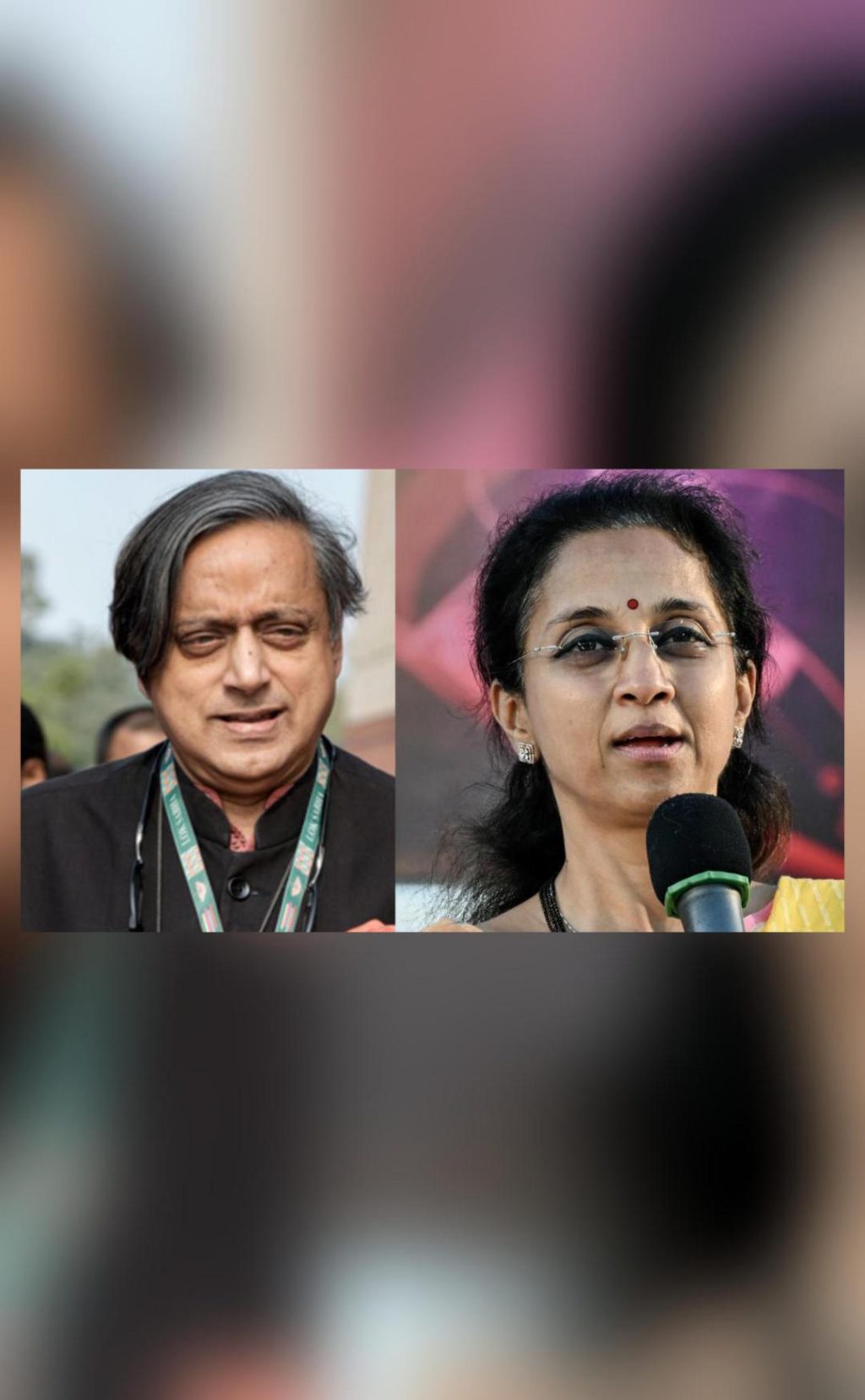
Title: Tharoor, Sule & others to head govt’s global delegations after Operation Sindoor
The recent Operation Sindoor, conducted by the Indian government, has sent a strong message to the world about the country’s zero-tolerance towards terrorism. In a bid to further reinforce this message, the government has announced the names of prominent leaders who will head delegations to key partner nations. These leaders will carry India’s strong message of opposition to terrorism to the world, as part of the government’s efforts to project India’s stance globally.
According to a recent report, Congress MP Shashi Tharoor, NCP-SP MP Supriya Sule, and several other leaders have been chosen to lead these delegations. The list includes Shiv Sena’s Shrikant Shinde, DMK’s Kanimozhi, BJP’s Baijayant Panda and RS Prasad, JDU’s Sanjay Jha, among others. This move is seen as a significant step by the government to amplify India’s voice against terrorism and to strengthen ties with its international partners.
Shashi Tharoor, known for his diplomatic acumen and extensive experience in international relations, is expected to lead a delegation to the European Union. As a seasoned politician and former UN Under-Secretary-General, Tharoor is well-equipped to navigate the complex diplomatic landscape and convey India’s stance on terrorism to key decision-makers in the EU.
Supriya Sule, daughter of the late Sharad Pawar, is another prominent leader who will head a delegation. As a member of the NCP-SP alliance, Sule has built a reputation for her strong advocacy on issues related to national security and foreign policy. Her delegation is expected to visit the United States, where she will engage with key stakeholders and policymakers to strengthen India-US ties and convey India’s message of zero-tolerance towards terrorism.
The inclusion of Shiv Sena’s Shrikant Shinde in the delegation is also significant, given the party’s strong nationalist credentials. Shinde has been a vocal advocate for India’s national security and has consistently supported the government’s initiatives to combat terrorism. His delegation is expected to visit key Gulf nations, where he will engage with local leaders and emphasize India’s commitment to regional security.
DMK’s Kanimozhi, known for her strong advocacy on issues related to human rights and social justice, will lead a delegation to the United Nations. As a member of the DMK, Kanimozhi has been a vocal critic of human rights violations and has consistently advocated for India’s commitment to international human rights law. Her delegation is expected to engage with key UN agencies and policymakers to promote India’s stance on human rights and to strengthen international cooperation on issues related to terrorism.
BJP’s Baijayant Panda and RS Prasad, both seasoned politicians with extensive experience in international relations, will lead delegations to key Asian nations. Panda, a former IAS officer, is known for his expertise in international trade and commerce, and is expected to engage with key stakeholders in Japan and South Korea to strengthen India’s economic ties with these nations. Prasad, a former Union Minister, has been a vocal advocate for India’s national security and has consistently supported the government’s initiatives to combat terrorism. His delegation is expected to visit key Southeast Asian nations, where he will engage with local leaders and emphasize India’s commitment to regional security.
JDU’s Sanjay Jha, a former Union Minister, will lead a delegation to key African nations. As a seasoned politician with extensive experience in international relations, Jha is well-equipped to navigate the complex diplomatic landscape and convey India’s stance on terrorism to key decision-makers in Africa.
The inclusion of these leaders in the government’s delegations is seen as a significant step to amplify India’s voice against terrorism and to strengthen ties with its international partners. By sending prominent leaders to key partner nations, the government is sending a strong signal that India is committed to combating terrorism and promoting regional and global security.
In conclusion, the announcement of these leaders to head the government’s global delegations is a significant development in India’s efforts to project its stance globally. With their extensive experience in international relations, diplomacy, and national security, these leaders are well-equipped to convey India’s message of zero-tolerance towards terrorism to key stakeholders around the world. As India continues to play a leading role in global affairs, the government’s efforts to amplify its voice against terrorism and to strengthen international cooperation on issues related to national security will be crucial in shaping the country’s future.
Reference:






